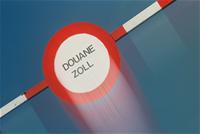The issue of exchange of tax information in the EU remains disputable
Adelina Marini, November 10, 2009
 Another serious dispute is expected at the ECOFIN Council today in Brussels. The dispute is regarding a package of measures, aiming at better tax management within the EU. A part of the package are amendments in EU directives on savings taxation and tax recovery, as well as anti-fraud agreements with Andorra, Liechtenstein, Monaco, San Marino and Switzerland.
Another serious dispute is expected at the ECOFIN Council today in Brussels. The dispute is regarding a package of measures, aiming at better tax management within the EU. A part of the package are amendments in EU directives on savings taxation and tax recovery, as well as anti-fraud agreements with Andorra, Liechtenstein, Monaco, San Marino and Switzerland.
The differences between member states are provoked mainly by the requirement for an automatic information exchange between member states because there is still no agreement on what types of information could be exchanged automatically. Now with greater taxpayer mobility, a growing volume of cross-border transactions and the internationalisation of financial instruments, it is becoming more and more difficult for the member states to properly assess taxes due.
Such effects entail double taxation, which in turn incites greater tax fraud and tax evasion. The proposals in the package are as follows:
- extending cooperation between member states to cover taxes of any kind;
- establishing time limits for the provision of information on request and other administrative
inquiries;
- one country cannot refuse to supply information concerning a taxpayer of another country on
the sole grounds that the information is held by a bank or other financial institution;
- allowing officials of one member state to participate in administrative inquiries on the
territory of another member state;
It is expected ECOFIN to achieve a political agreement on the draft directive aimed at updating  EU rules on the structure and rates of excise duties on tobacco products. The idea of the proposal is ensure a higher level of public health protection by raising minimum excise duties on cigarettes. If there is an agreement, from the st of January 2014 the monetary minimum excise rate to 90 euros per 1,000 cigarettes and the proportional minimum to 60% of the weighted average sales price, from 64 euros per 1,000 and 57% at present. The proposals grants transitional periods by 1st of January 2018 for those countries that would have not reached this rate. Those are Bulgaria, Greece, Estonia, Latvia, Lithuania, Hungary, Poland and Romania.
EU rules on the structure and rates of excise duties on tobacco products. The idea of the proposal is ensure a higher level of public health protection by raising minimum excise duties on cigarettes. If there is an agreement, from the st of January 2014 the monetary minimum excise rate to 90 euros per 1,000 cigarettes and the proportional minimum to 60% of the weighted average sales price, from 64 euros per 1,000 and 57% at present. The proposals grants transitional periods by 1st of January 2018 for those countries that would have not reached this rate. Those are Bulgaria, Greece, Estonia, Latvia, Lithuania, Hungary, Poland and Romania.
In October the Bulgarian government has decided to increase the excise on tobacco products as from 1st of January 2010 from 41 lv (21.02 euro) per 1,000 cigarettes to 74 lv (37.94 euro) + 36% of the average sales price. The decision is included in the Law for the Budget 2010 but is yet to be approved by Parliament. The compromise also allows member states not benefiting from the transition to impose a quantitative limit of at least 300 cigarettes on the number of cigarettes that may be brought into their territory from member states applying transitional arrangements, and for member states applying those arrangements, once their rates have reached 77 euros per 1000 cigarettes, to apply quantitative limits with regard to member states whose rates are below 77 euros.
The finance ministers will also discuss the reduction of administrative burdens. This was endorsed in March 2007 by the European Council and is also part of the European Recovery Plan, aiming by 2012 the administrative burdens to be reduced by 25%. The national target of Bulgaria is by 2012 the burdens to be reduced by 20%. This is included in the governing programme of the government, published couple of days ago on the website of the government.
 Federica Mogherini | © Council of the EU
Federica Mogherini | © Council of the EU | © Council of the EU
| © Council of the EU Luis De Guindos | © Council of the EU
Luis De Guindos | © Council of the EU